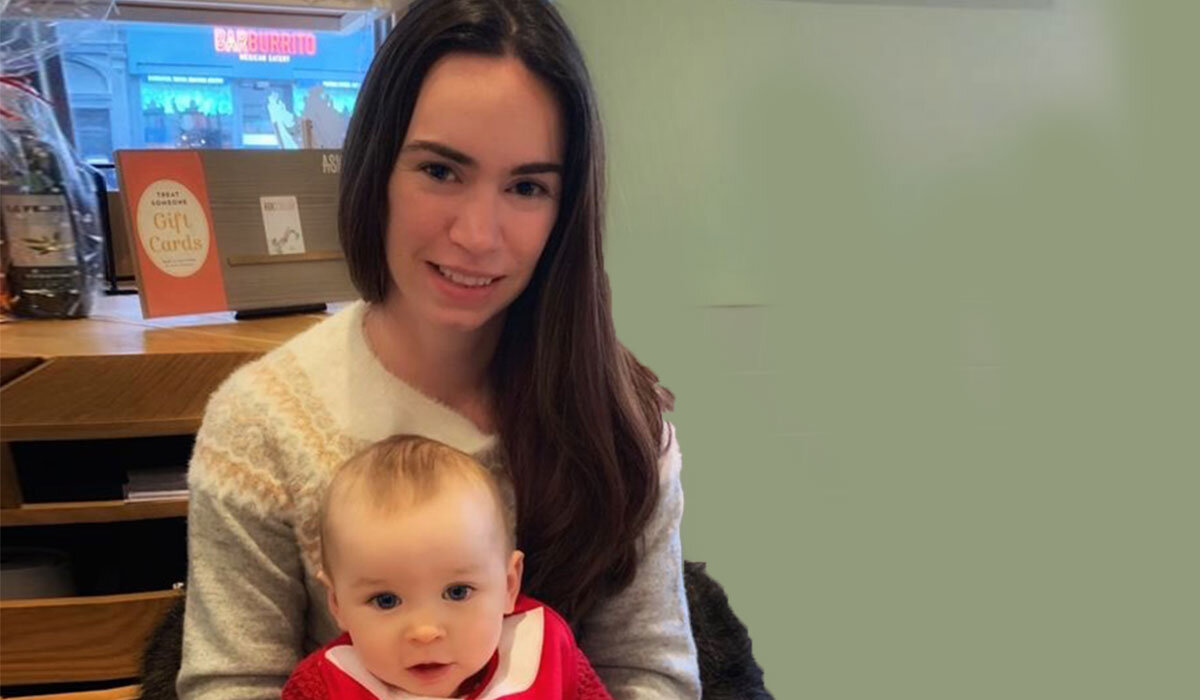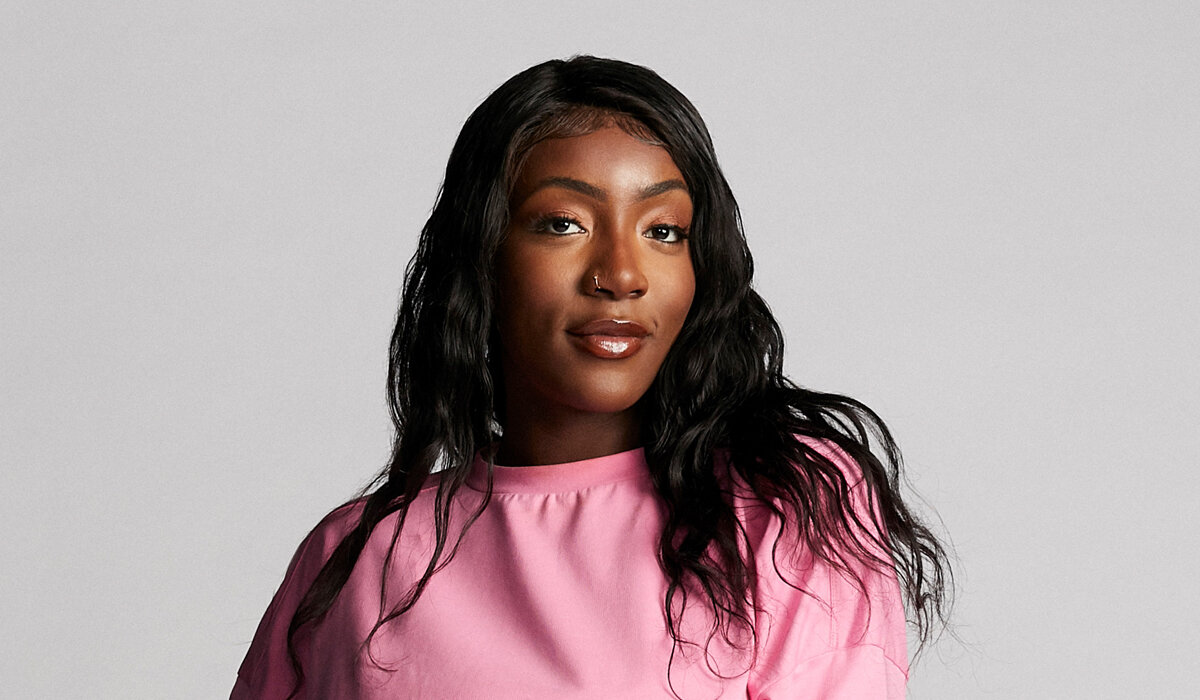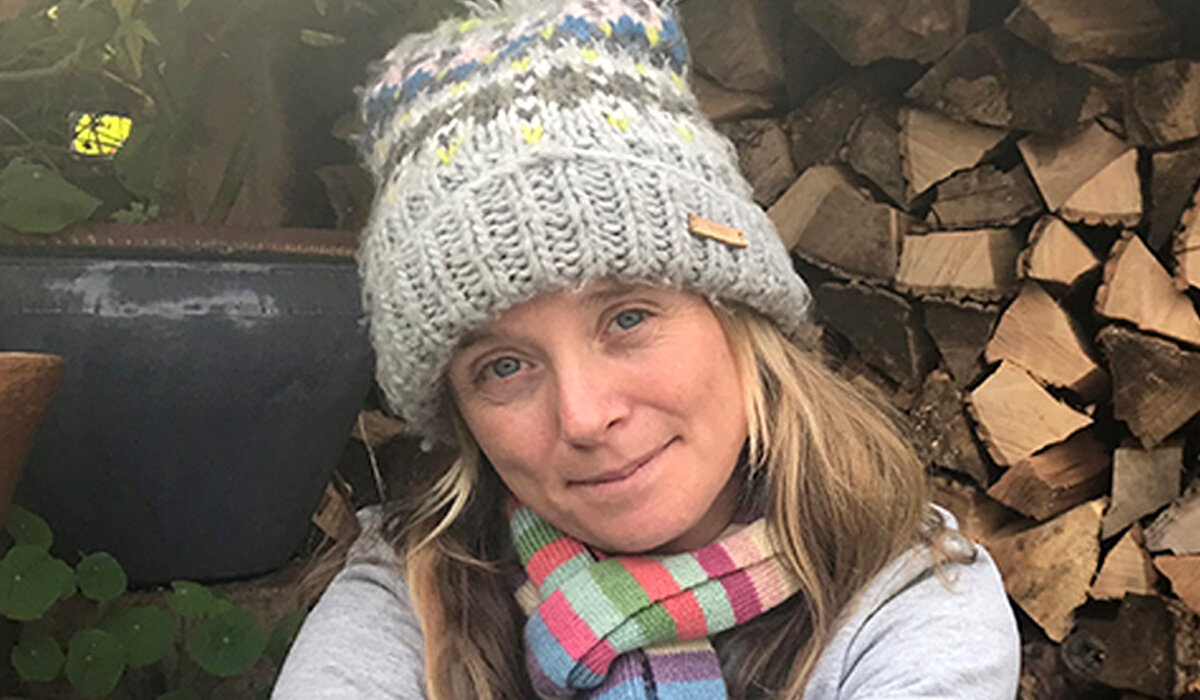
"I would love midwives to make small changes to their communication style, and understand the needs of autistic women."
Rachel Townson
- on pregnancy and being an autistic parent
Stories from the Spectrum: Rachel Townson
In this Stories from the Spectrum interview, we spoke to Rachel Townson.
Meet Rachel Townson, autistic woman, online trainer and a speaker at our Women and Girls Conference, where she discussed pregnancy and motherhood.
We spoke to Rachel about her experience of being pregnant, the importance of sex education, and how professionals can better support autistic women during pregnancy.
When were you diagnosed as autistic?
I was diagnosed at the Lorna Wing Centre by Dr Judith Gould in my mid-twenties. I was supported by my manager at the time. I was struggling to understand myself, as I couldn’t identify as autistic or non-autistic. I felt autistic yet I worried that I was projecting my academic studies − things I had read or heard about autism − onto myself, and it wasn’t my true self. I needed to know as it was driving me insane. The diagnosis was a relief, as I felt that I could finally understand myself and access the right support.
What was your experience of pregnancy like?
I loved the thought of being a mum but I hated the experience of being pregnant. I had to take anti-sickness medication so I could keep ice chips down due to hyperemesis gravidarum. From speaking to other mums, I think this is surprisingly common among autistic women, but is considered less common in the non-autistic population.
Did your autism diagnosis impact your approach to pregnancy?
I’ve always had a strong sense of smell, and although sensitivity to smell increases for most people during pregnancy, I was so impacted that I had to wear earplugs in my nose and learn to breathe through my mouth in my first trimester. I also found myself obsessively planning maternity pay, nursery and being a parent. I had notes written up on how to get a baby to sleep, breastfeeding and weaning.
What are some of the barriers that autistic women may face when seeking support during pregnancy?
Taking things literally was one of the largest challenges faced when looking for support. I often didn’t know what to expect at each appointment, and when I would take a directional task literally they would think I was being difficult or rude.
Also, midwives in my area are hugely over-worked and, although I disclosed my diagnosis, there were no adjustments made. I never had the same midwife more than twice. The uncertainty escalated my anxiety and I dreaded each appointment, to the extent I would question the receptionist about who I was seeing as soon as I arrived and was left trembling when she couldn’t tell me.
How do you think sex education can be improved for autistic women?
Some autistic people can take things very literally. For instance, I thought that if I had unprotected sex, it would mean that I would get pregnant easily and quickly.
It’s really important that topics like sex are explained as clearly and explicitly as possible.
Sex education needs to be a lot more widely focused than protection. It needs to explain the biology a lot more and the process of sperm, egg and ovulation.
For many, there is only a 12-48 hour window of actually conceiving and that’s without any other complications so falling pregnant is not as easy as many may believe. However, due to so many variations, it is still vital that those not trying to conceive are protected and all of this information needs to be shared in teen years and beyond.
What do professionals need to know to better support autistic women during pregnancy?
Professionals need to focus on the individual, and when that person has disclosed their autism diagnosis, adjustments should be made in order to be clear, direct and as structured as the process can be. For me, these adjustments would include: knowing your appointments, what is expected of you, what you are likely to experience and some of the variations in experiences. For example, I did not experience contractions as I was told I would. I felt pain later on, and it turned out I was 8cm dilated and the baby was breach with a foot lodged in my rib. If I had been more aware of the fact some people don’t see or feel the tightening contractions, then I would have been to hospital earlier with the back and vaginal pain as indicators.
Appointments are not autism-friendly at all. For me, I was overwhelmed when presented with a large book on the first hospital visit. I was then given no information at my next appointment, or what to expect during the pregnancy. A lot of the time, you are left in a state of stress and anxiety, so you turn to Google, which is full of stories of horror and grief, only escalating your anxiety further.
What do you want people to take away from your talk at our Women and Girls Conference?
I would love for professionals in the midwifery services to make small adjustments to their communication style, to aim for familiarity and structure at appointments and to understand the literal and sensory needs of autistic women.
"I would love for professionals in the midwifery services to make small adjustments to their communication style, to aim for familiarity and structure at appointments and to understand the literal and sensory needs of autistic women."

Women and Girls online training module
Want to find out more about autism in women and girls? Access our online module to learn more.
Similar stories

"I wanted to be very open about my diagnosis, as it is nothing to be ashamed of."
Emma Finch
- on starring in MTV's 'Teen Mom UK' and representing autistic mothers
Read more

"Don't feel like you have to hide your autism from your children. That way they know what's going on and they don't worry about it."
Purple Ella
- on parenting and discussing autism with her children
Read more

The Spectrum magazine
Explore one of the UK's largest collections of autistic art, poetry, and prose. The Spectrum magazine is created by and for autistic people, and is available both online and in print.
Read the Spectrum





You are not alone
Join the community
Our online community is a place for autistic people and their families to meet like-minded people and share their experiences.
Join today